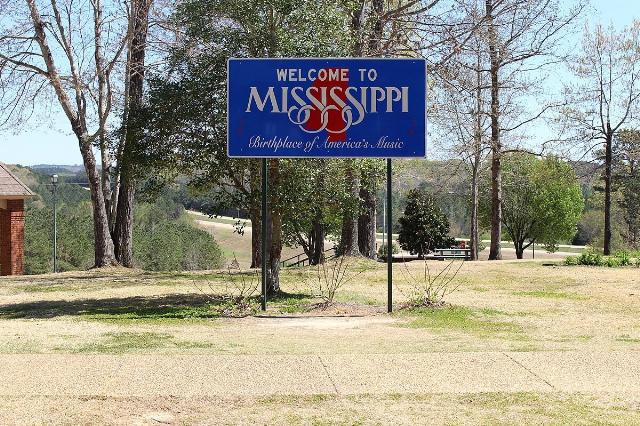Mississippi on the move
Mississippi was the second-fastest growing state in the last quarter of 2024, according to new data from the U.S. Bureau of Economic Analysis. Output per person in the Magnolia state increased faster than any state besides Arkansas.
One set of data might be a fluke, but then the previous quarterly data told a similar growth story. We are starting to see a trend as Mississippi takes off economically.
Mississippi’s been stuck at 50th out of 50 for so long, some struggle to believe we could be anywhere else. But the truthis that our per capita GDP zipped past Britain’s in 2023 and is set to overtake Germany’s this year. If the explosive growth from late 2024 keeps up, we’ll leapfrog several U.S. states in the next decade. That “last place” label? It’s starting to peel off.
What’s behind this turnaround? Free market reforms -- plain and simple. Mississippi was held back by high taxes, stifling regulations, and cartels -- especially the one under the Capitol dome in Jackson -- calling the shots.
A generation ago, Mississippi’s economic development strategy was to send long-serving politicians to Washington D.C. to hustle for handouts. If federal subsidies made a state rich, ours would have been the wealthiest state in the Union.
But today, we’re growing because bold leaders -- backed by the support of voters -- are pushing pro-growth policies:
- Tax Cuts: Since we started trimming the income tax to a flat 4% in 2022, the Mississippi Development Agency estimates there’s been a whopping $19 billion inward investment. Businesses are flocking here, confident that their payroll taxes will tumble.
- Flexible Labor Market: Already an “at-will” employment state, Mississippi passed a little-noticed law in 2021 to ease occupational licensing. Local boards are increasingly under pressure to reduce onerous red tape.
- Business-Friendly Planning: While other states drown companies in approval processes, Mississippi rolls out the welcome mat.
- Cheap Energy: Two new data centers are coming, and they’ll need oodles of electricity. Good thing Mississippi’s natural gas and nuclear keep our electricity cheap -- around 13.43 cents per kWh versus California’s wallet-busting 34.26 cents. Affordable energy is turbocharging our growth.
Mississippi has only adopted pro-growth policies only because a handful of bold conservative leaders have been prepared to fight for them. Just three weeks ago, our Senate’s current leadership was maneuvering against income tax elimination.
Imagine what we could achieve if the Senate was on board with free-market reform? We’re surrounded by states with school choice, but our Senate blocked even a modest public-to-public option. Healthcare’s tangled in “certificate of need” nonsense, and Senate leaders killed that fix too.
Mississippi is on the rise, but we need to double down on pro-growth reforms, especially school choice.
Douglas Carswell is the President and CEO of the Mississippi Center for Public Policy.

Image: Michael Rivera
FOLLOW US ON
Recent Articles
- The Death of the Center-Left in America
- ‘Make Peace, You Fools! What Else Can You Do?’
- When Nuclear Regulation Goes Awry
- The Danger of Nothing
- A New Pope With Courage
- Not in Kansas Any More
- Democrats Dying on the Most Desolate Hills
- If She’s an Astronaut … I’m a Jet Fighter Pilot
- Is the Jihadist Trojan Horse Winning?
- Who Has the Best American Autobiography?
Blog Posts
- Celebrate Earth Day by not burning a Tesla
- Minnesota state bureaucrat charged with vandalizing Teslas to the tune of $20,000 is let off scot-free
- Trump’s plan for Gaza vs. the New York Times
- What’s next for Syria?
- Tulsi Gabbard's latest Biden revelation
- Mexican ammo wranglers
- Rep. Jamie 'Maryland Man' Raskin also threatens Trump supporters
- The eight narrative fallacies that drive American politics
- Summertime reality twisted into climate exasperation
- Life discovered on a distant planet?
- The answer is not blowing in the wind
- Letitia James: it's either/or
- Harvard elitism meets Donald Trump
- The GEC is finally more than mostly dead
- We're not the same






